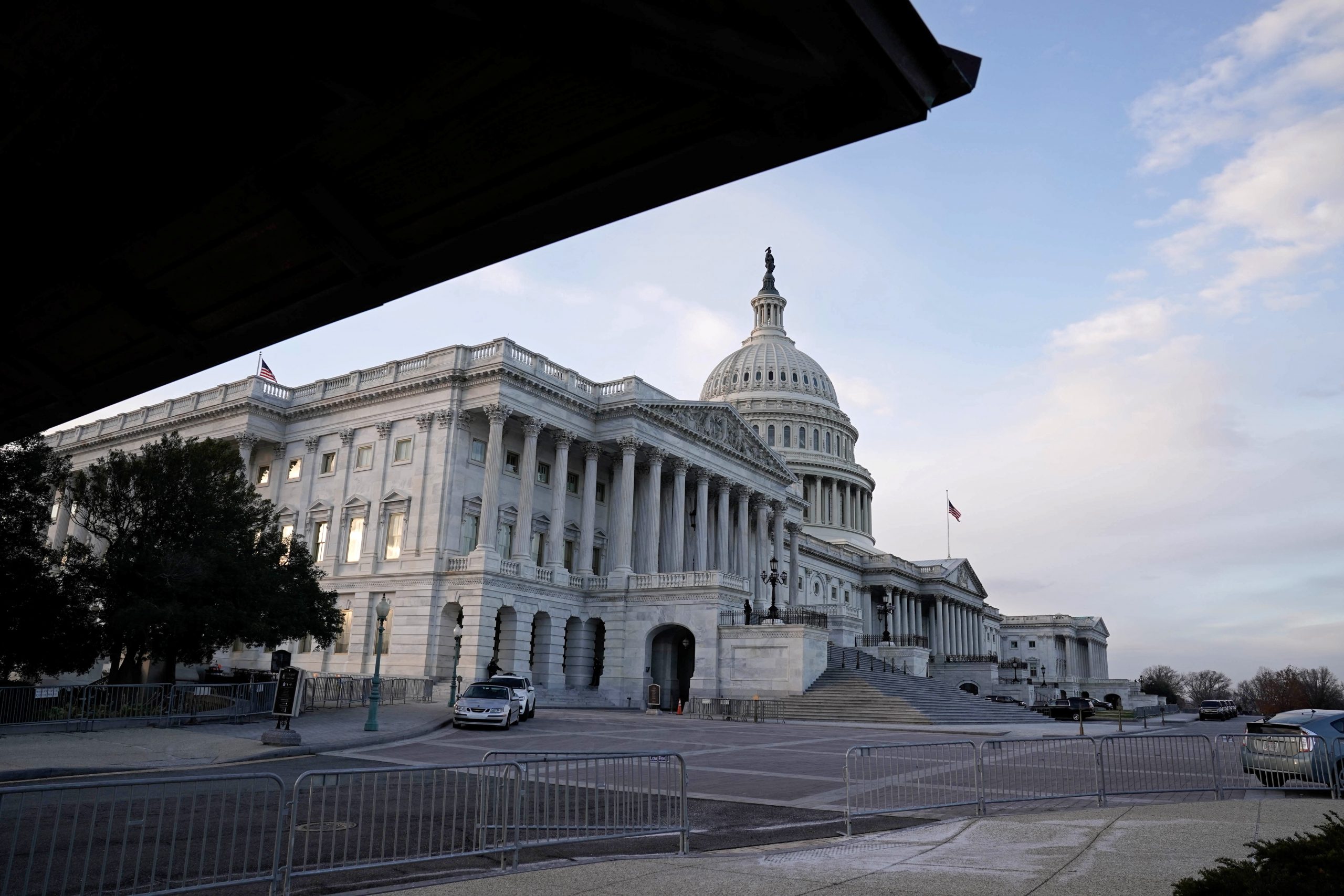From freshman congressmen to long-time fiscal hawks, the third round of coronavirus relief legislation continues to fall under heavy fire in the Republican caucus.
The $1.9 trillion package, complete with billions in earmarks comparable to those in the first two rounds, passed a Democrat-controlled House on Saturday morning by a margin of just seven votes — and it was a hot topic at the 2021 Conservative Political Action Conference, where prominent conservatives lampooned the development both on and offstage.
“This bill is trash. It’s actually an atrocity, if you really think about it,” Rep. Byron Donalds said in an on-site interview with The Western Journal in Orlando, Florida. “Only 9 percent of this bill actually goes towards COVID-19. Nine. Percent.”
“So, we’re spending $2 trillion, apparently — but we only need 9 percent of that money to actually go to actually put shots in the arms and pay people to help put those shots in their arms. You probably have another three to four hundred million dollars going into these direct checks,” the Florida congressman added.
“What we’re not doing is making sure that the checks are going to people who actually have lost their job and are not back to work.”
BREAKING: U.S. House votes 219-212 to approve $1.9T Covid-19 relief package; bill moves to the Senate, where a provision increasing the federal minimum wage is expected to be stripped following a ruling by the Senate parliamentarian. https://t.co/LPZLJjkCWn pic.twitter.com/7qPYrvztQR
— NBC Politics (@NBCPolitics) February 27, 2021
An extension of the second relief bill, which was signed in December after a months-long wait, the legislation would fund Biden administration vaccination efforts and another slew of direct payments to American families, who saw their prospective relief cut last minute in Senate negotiations last time around.
As the House Republican Study Committee was quick to point out this month, however, the most recent plan is also loaded with an abundance of “special interest pork and other liberal goodies,” the sum of which led members to allege the bill was House Speaker Nancy Pelosi’s attempt to “pay off” progressive voters for their loyalty in the 2020 election.
According to a recent memo circulated by HRSC Chairman Rep. Jim Banks of Indiana, those so-called payoffs included an incremental minimum wage increase, state bailouts, climate “justice” spending and direct payments to families that include illegal immigrants.
Prominent left-wing organizations like Planned Parenthood would also be made eligible for financial support, and another $130 billion was earmarked to schools that had, in previous packages, received $110 billion for universal reopening efforts that have failed to take place.
“The worst part of this bill, the absolute worst is the pork,” Donalds told The Western Journal.
“It’s the bridges from Buffalo to Canada. It’s the underground railroad in Silicon Valley, when they have so much money in Silicon Valley they should build their own underground railroads. It’s the fact that you have Democrats, who are basically being bought off to vote for this bill.”
It’s time we speak truth in the nation’s Capitol:
The American Rescue Plan is being sold to the public as COVID-19 aid, yet only 9% of the funds are directed towards providing stimulus relief. The American taxpayers deserve better than radical and fake relief bills. pic.twitter.com/XYvfGuSeNR
— Congressman Byron Donalds (@RepDonaldsPress) February 27, 2021
Those sentiments were not confined to feverish freshmen like Donalds, however. Longtime budget hawks like California Rep. Tom McClintock were just as impassioned, fighting the package tooth and nail from the trenches.
One of few congressmen deemed perfect by Citizens Against Government Waste in their fiscal voting record, McClintock was at the Capitol with Donalds on Saturday morning cast a “nay” vote.
When the two arrived at CPAC later that afternoon, the senior congressman told The Western Journal it was not simply about numbers on a piece of paper, but the Americans who would one day be forced to foot the bill for such projects.
“People have to understand what it means to their families,” McClintock said. “That’s not a theoretical number.”
“Your family is going to have to repay through their future taxes, tax-driven price increases, inflation and lower wages as businesses pass along their costs”
“People need to start asking themselves, that’s the car they won’t be able to afford in the future, that’s the home they won’t be able to qualify for in the future,” he said.
“All of that comes out of our future earnings as families.”
This article appeared originally on The Western Journal.

























 Continue with Google
Continue with Google